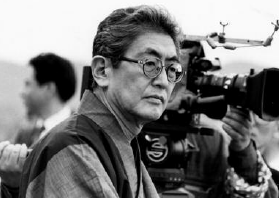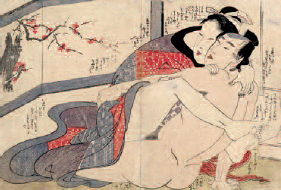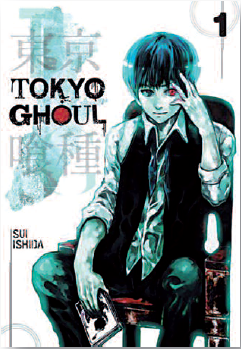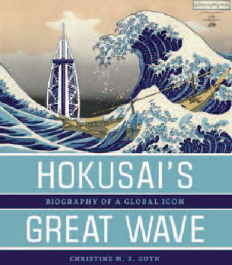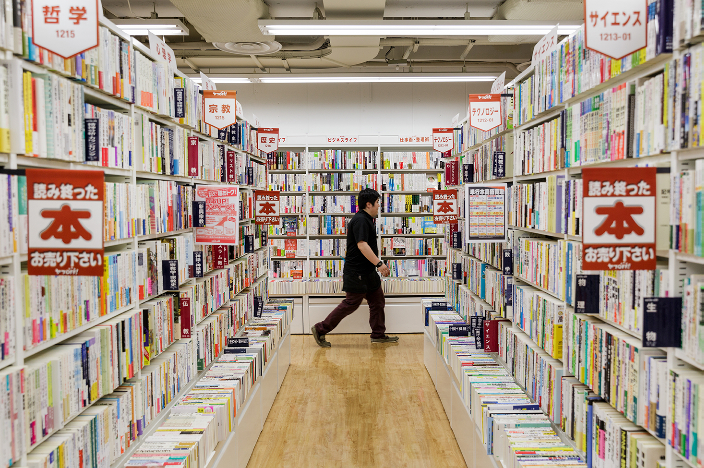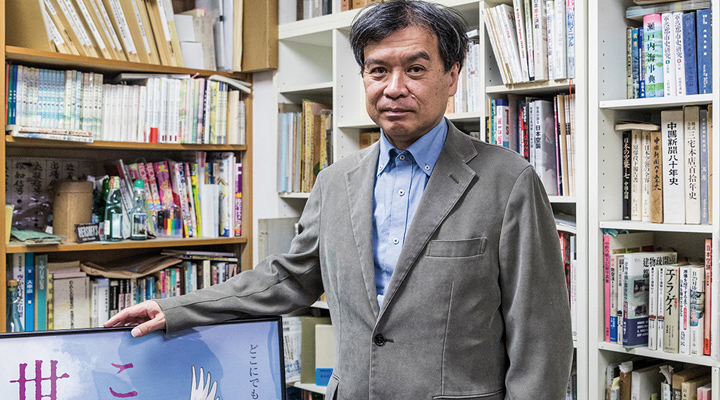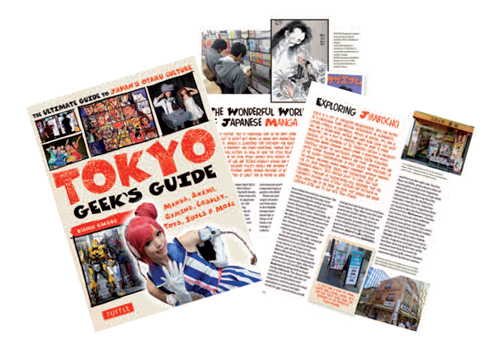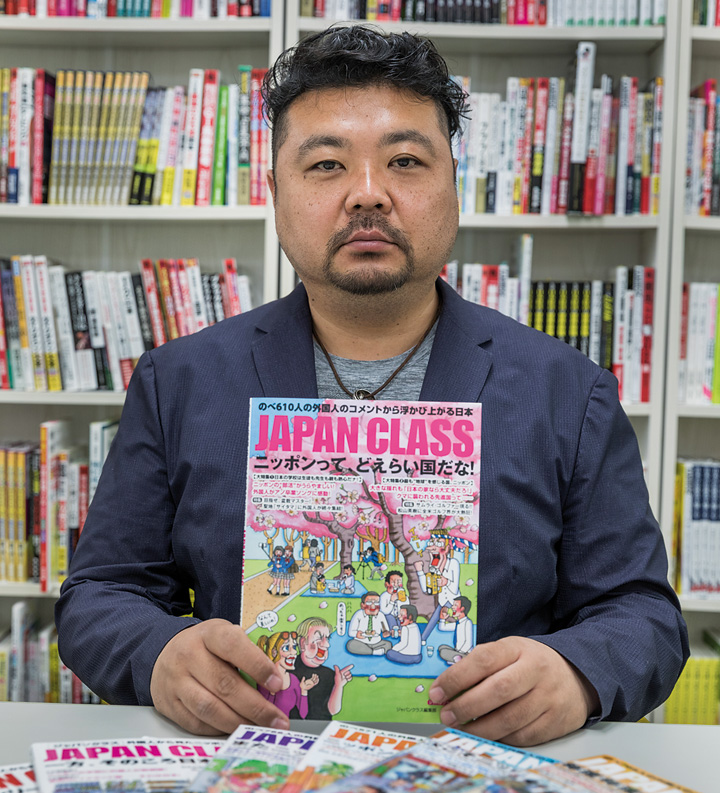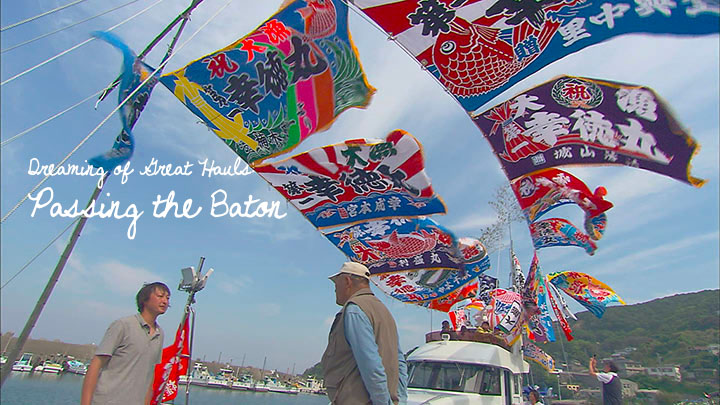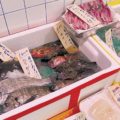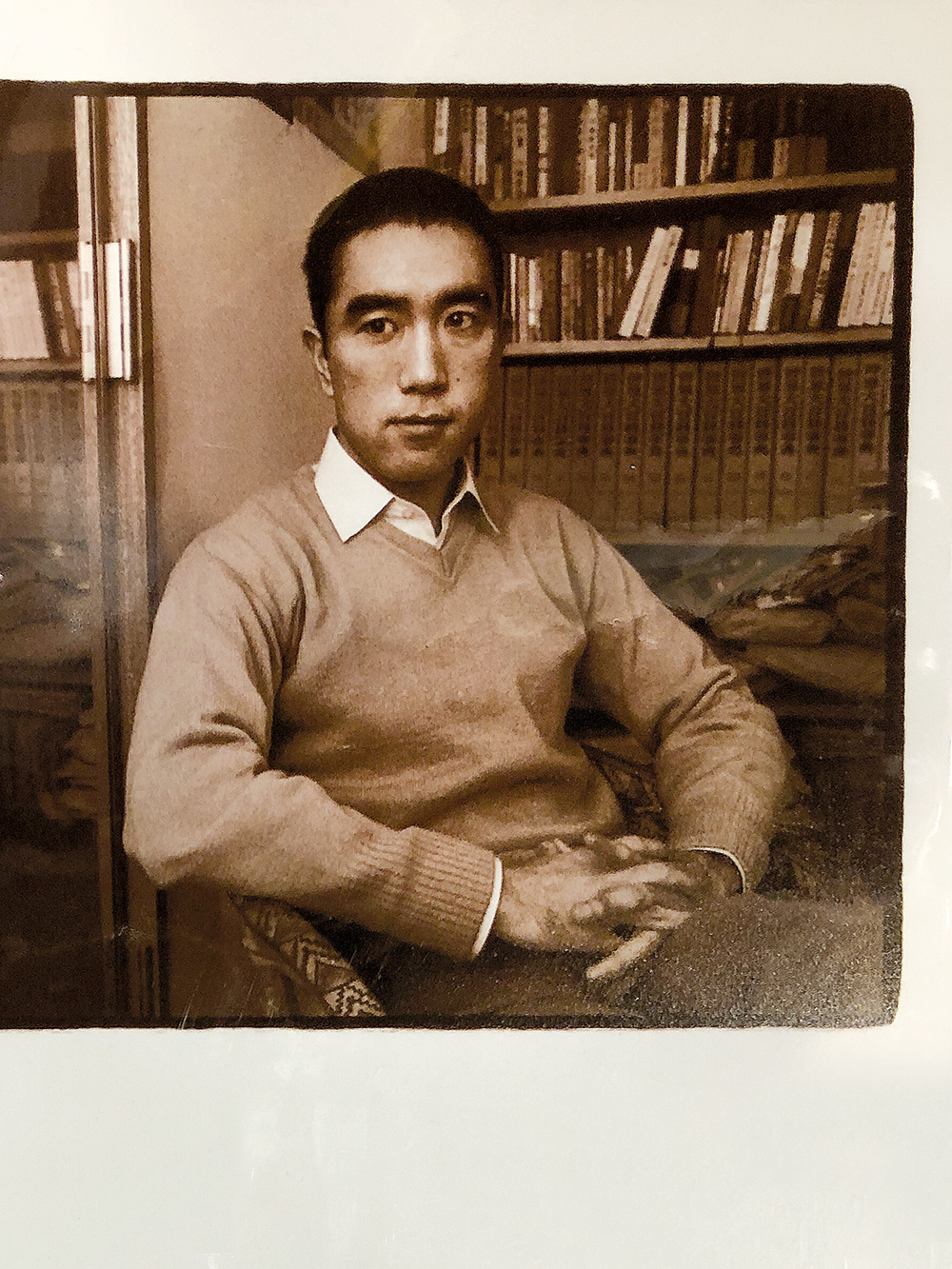

MISHIMA Yukio dreamed of being awarded the Nobel Prize for Literature.
A great admirer of the author of Confessions of a Mask, the novelist is also a leading expert on his work.
HIRANO keiichiro, one of the youngest recipients ever of the prestigious Akutagawa Prize, says that he wouldn’t be a novelist without his encounter with MISHIMA Yukio. he was born in 1975 when people still remembered well the circumstances in which the writer had ended his own life. In elementary school, his teacher told his class that there was once a strange writer named MISHIMA who had rushed into the Self-Defence forces headquarters and had committed seppuku or ritual suicide. That story left a strong impression on young hIRANO. In junior high school, he started reading the masterpieces of modern Japanese literature one after another, until, when he was 14, he found The Temple of the Golden Pavilion. Again, hIRANO became so absorbed in the novel that he even forgot to eat and sleep. he has since become an expert on all things MISHIMA, to whom he has devoted several essays.
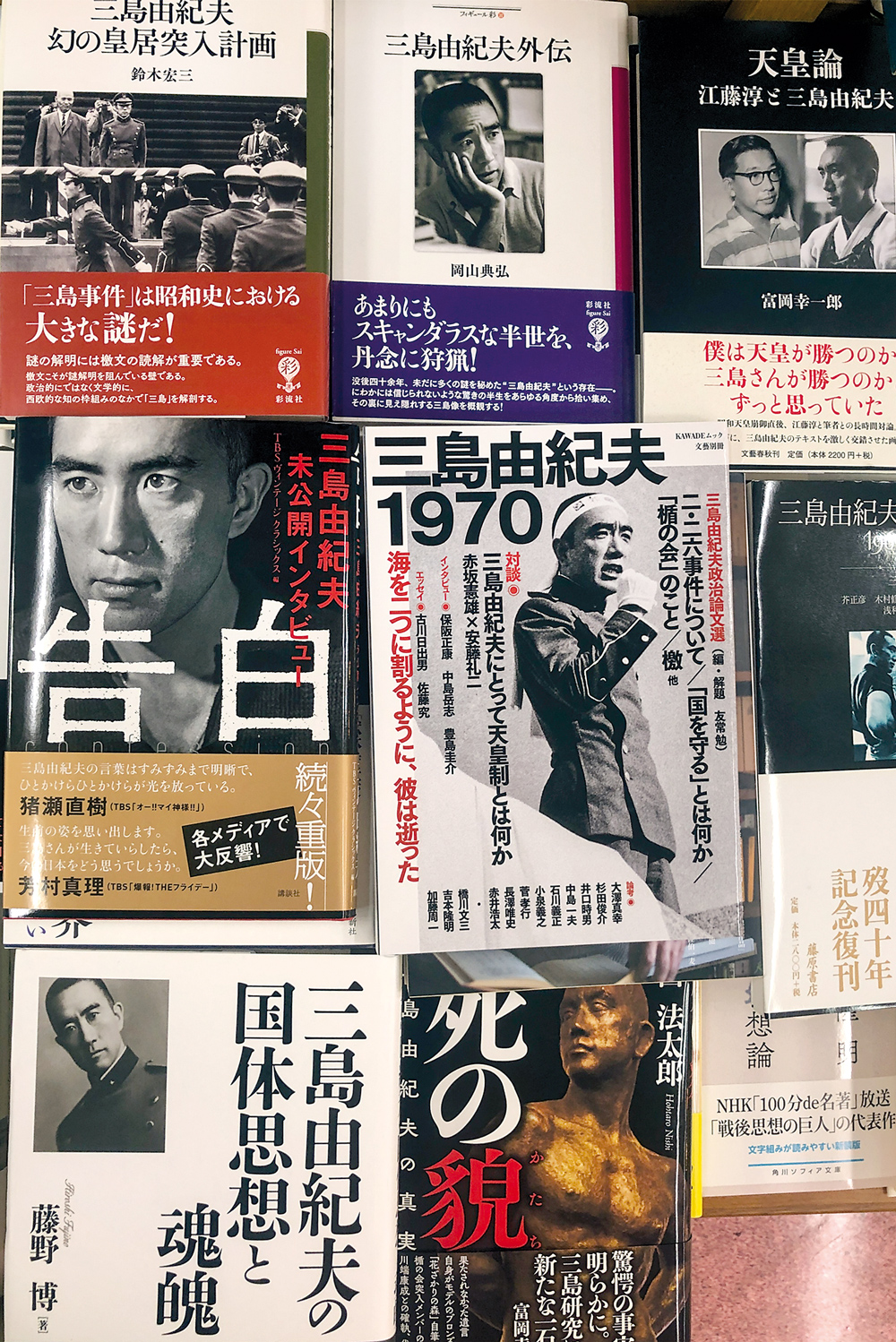
You are among the 13 people who were interviewed in TOYOSHIMAkeisuke’s documentary Mishima Yukio vs Todai Zenkyoto. I must confess that I found the debate friendlier than I expected.
HIrANO keiichiro: even though the debate was advertised rather eye-catchingly as MISHIMA vs Zenkyoto, most of the people who attended the event on 13 May 1969 were ordinary students. They were probably in awe of MISHIMA, and just nervous and excited that they had a chance to see the man on stage. As for the seemingly irreconcilable differences between the two sides, it’s true that MISHIMA wanted to restore sacredness and dignity to the Japanese emperor, but he was also very critical of postwar Japan. he believed that the new u.S.-enforced constitution had degraded the country. In that sense, he empathised with the students to a certain degree; their ideas were closer than one might think. Besides, MISHIMA’s rival may have been the mighty zenkyoto, but in the end, students are students. Age-wise, MISHIMA could have been their father, and in the footage of the debate you can see that, without being patronising, he was lenient with them while the students, on their part, show great respect towards him. I happen to be 45 now – the same age MISHIMA was when he died – and I often talk to young people, so I can relate to his approach.
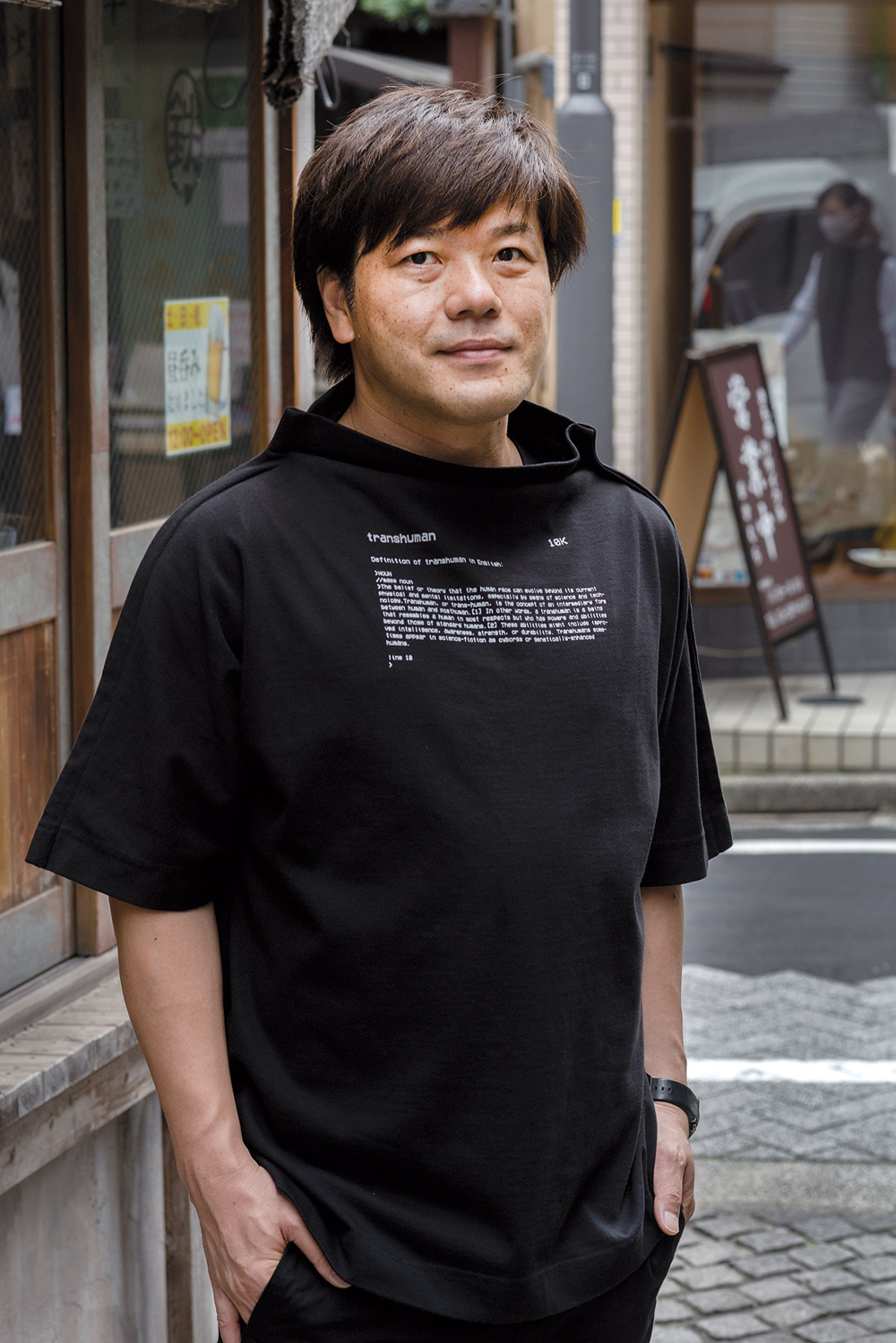
Many people have commented that the MISHIMA who met the students in 1969 and the MISHIMA who committed suicide one year later look like two different people. However, you don’t seem to see a contradiction between them. why is that?
H. K.: MISHIMA’s personality was extremely difficult to pin down. he liked to say and do contradictory things; to confound his audience. I’ve had a chance to talk to many people who knew him when he was alive – artist YOkOO Tadanori, singer and actor MIWAAkihiro, right-wing politician SuzukIkunio, etc., and each one of them portrayed a different person, a different character, the only common trait being that he was immensely charming. If you keep that in mind, it’s easier to understand his gentlemanly behaviour during the debate.
we focus on MISHIMA’s life and work during the 1960s, when his political ideas came to the fore. However, it’s probably difficult to separate his later years from the earlier part of his life.
H. K.: MISHIMA’s background is certainly important in approaching the true nature of his character. for example, the fact that MISHIMA later became an avid bodybuilder can be connected to his childhood when he was a sick and skinny boy. Then there’s his wartime experience. Between 1931 and 1945, Japan was at war. That means that MISHIMA, who was born in 1925, grew up in a particular environment. he dreamed of fighting, even dying for his country. Then in 1944, when he was 19, he received a draft notice but was declared unfit for military service. he stayed at home and survived while many boys of the same age died in the war. I think the experience of being labelled by the nation as “sick” and “useless” had a huge impact on his life.
Do you mean he felt guilty for not going to war?
H. K.: I think he experienced so-called “survivor guilt”, being one of the lucky ones who survived while many of his friends and classmates went to their death in the war. You have to understand that for many, probably most Japanese, the Pacific War was a just war. When Japan first took Manchuria in 1931, and then invaded China in 1937, more than a few people criticised the government for what was considered a war of aggression. But when Japan attacked Pearl harbour in 1941, the general opinion was that the country had been forced to fight against an imperialistic power. All of a sudden, war became a good thing and, most importantly, Japan began to be seen as a victim, not an aggressor. MISHIMA shared this opinion. In fact, you can hardly find any reference to China in his writing. Instead, MISHIMA is endlessly fascinated by the heroism of the Japanese soldiers, especially the kamikaze.
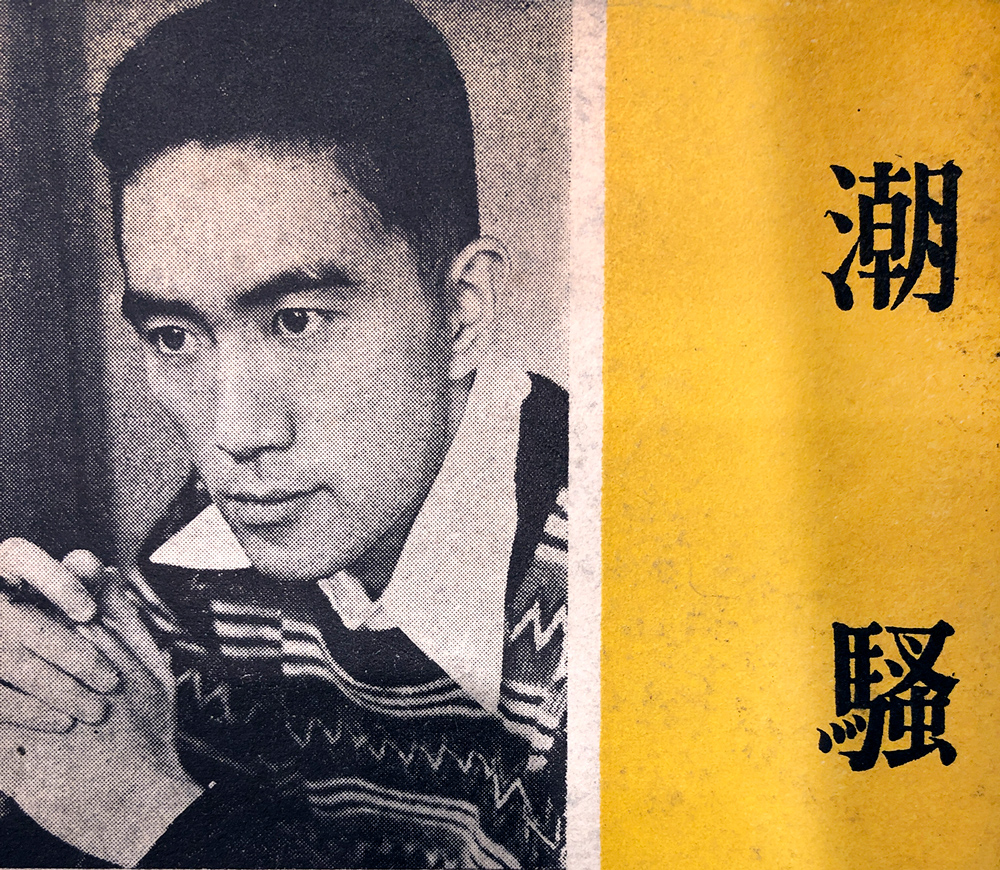
How did his wartime experience affect his later life?
H. K.: The autobiographical element can be found in much of his work, starting with his breakthrough novel, Confessions of a Mask (1949), whose protagonist, like MISHIMA, didn’t go to war. What the hero is worried about is that, as a survivor, he has to use his time in a fulfilling and meaningful way. That’s what MISHIMA himself felt at the time. The problem was that the political and social debate in the postwar years was, once again, monopolised by those who had had a first hand experience of fighting. Novelist OOkA Shohei’s Fires on the Plain, for example, is based on his experience of the war in the Philippines. Other intellectuals had a much harsher time than MISHIMA. Then there was the younger generation (e.g. Oe kenzaburo who was ten years younger than MISHIMA) who were clearly opposed to war and were pushing for a more democratic society. I think MISHIMA was not sure how to position his political discourse. When he tried to talk about the war, he was reminded that he hadn’t gone to the front. During the 1950s, he sought fame by both engaging with the media and publishing several popular, light-hearted novels besides the major titles for which he is mainly known. he didn’t espouse right-wing ideas until later in life.
In the 1960s, MISHIMA began to write works with a strong political message. In 1961, for instance, he published the short story Patriotism, which dealt with the February 26 Incident, while The Voices of the Heroic Dead is another short story from 1966, which was based on the spirit of the kamikaze corps. was this his reaction to the changing times?
H. k.: The malaise of the new decade ended up exacerbating his growing sense of unease and his feelings of alienation from postwar society. As the student movement became stronger, I think he began to question his place in the literary world, and his own position in the political arena. As I said, immediately after the war, he could not express his political approach very well because there were all these other people with actual war experience who were constantly talking about it. But in the 1960s, with the Anpo Struggle (protests against the u.S.-Japan Security Treaty) and the left-wing student groups fighting in the streets, the possibility of committing to politics opened up again. At last, he could discuss his ideas with a younger generation who, like him, had no war experience. In my opinion, even sexuality played an important role in his alienation. Being gay, MISHIMA felt that while society had become more tolerant and open to discussing sexual issues, gays remained a suppressed minority. Indeed, while he tackled homoeroticism in several of his works, he never openly came out as gay.
If MISHIMA was still alive, how do you think he would judge contemporary Japan?
H. K.: even Oekenzaburo in his novel Sayonara, Watashi no Hon, yo! (Farewell, My Books!, 2005) poses the same question. I think he would be disappointed. he would regret the loss of traditional values and the emergence of globalism. he would probably not like the internet either. As far as the political discourse is concerned, it’s true that former Prime Minister ABe Shinzo’s attempt to change Article 9 of the Constitution (in order to have the military fully and officially recognised) could be seen as the continuation of MISHIMA’s ideas. however, MISHIMA himself was very critical of the Liberal Democratic Party, which has ruled Japan almost uninterruptedly since the end of the war. The reason is that today’s conservatives and right-wingers are always trying to sell a very positive image of Japan. In their eyes, Japan is a unique, wonderful country, even though their arguments are often rather low level (e.g. the whole world envies our Washlet toilets). MISHIMA, on the contrary, didn’t like the way Japan had changed after the war. he longed for an older Japan, embodied by the god-like figure of the emperor, where traditional values were still respected.
Speaking of MISHIMA’s hypothetical view of today’s Japan, even the image and role of the emperor has changed a lot in the last 50 years, especially when you consider Emperor Akihito’s apologies for Japan’s war of aggression in Asia and his visit to several countries and Pacific war battlefields.
H. K.: Akihito has been a rather liberal emperor, and his ideas have often so contrasted with those of ABe and the Liberal Democratic Party that, thanks to him, many left-wing politicians have re-evaluated the figure of the emperor. I personally disagree with their attitude. In my opinion, the imperial institution should be judged regardless of the actual person who occupies that position at any given moment. for MISHIMA it was the same: whenever he talked about the emperor, he never specified what in his opinion made the “ideal emperor”. To be sure, he had a conflictual attitude towards hirohito (Akihito’s father). On the one hand, one of MISHIMA’s fondest memories is hirohito’s visit to his school when, at 16, he made his literary debut with his first story to be published outside school magazines. On the other hand, though, he couldn’t forgive him for not recognising the attempted coup d’état in 1932 (the february 26 Incident) and especially for denying his own divine origin at the end of the war. Before the war, there was a strong sense of connection between the emperor and his subjects. The emperor was the head of the Japanese family and his children were ready to die together for him. But after the war, the emperor became an ordinary person. The media increasingly featured him and his family, turning him into a kind of celebrity. MISHIMA despised what he called “Shukanshi Tennosei” (weekly magazine emperor system) because for him the idea of creating connections between the emperor and the people by taking away his dignity was wrong.
Some people say that one of the reasons for his suicide was MISHIMA’s disappointment at not winning the Nobel Prize in Literature. Do you think if he had been awarded the prize that he might have changed his plans?
H. K.: I think MISHIMA wanted the prize. he had many admirers in Japan, even among literary critics, but he had never won the Akutagawa Prize, and soon after the war, he’d been turned down for several other awards. So he sought approval abroad. he courted the foreign media and even began to give interviews in english. MISHIMA was reportedly nominated five times for the Nobel Prize. My guess is that if he’d won it when he was in his late 30s (though giving the award to such a young author is very unusual) he wouldn’t have killed himself. however, in the first half of the 1960s he went through a creative slump. he lost his sense of direction and tried different subjects, but the resulting novels did not match up to his best work, Confessions of a Mask and The Temple of the Golden Pavilion. he was especially hurt by the lukewarm reception for Kyoko’s House in 1959. The problem was compounded by the fact that his books didn’t sell well. According to hIROSe Naoki’s book, sales were down to 10- 20,000 copies, which was pretty depressing when compared to Oe kenzaburo and other younger authors whose books sold more than 100,000 copies. So my take on this period is that MISHIMA lost confidence, and by the time he entered his 40s, he was already planning his own death. It is worth noting that two short stories from 1960, Ai no Shokei (Love’s Execution) and Patriotism, end with gruesome hara-kiri scenes, which, by the way, are suffused with a high degree of eroticism. he seemed to become obsessed with acting and dying beautifully.
It must also be noted that MISHIMA was always fascinated with people who had died young.
H. K.: That’s true. MISHIMA idealised such people as Raymond Radiguet (a french novelist and poet who died at the age of 20), the officers of the failed february 26 Incident, and the kamikaze. he was painfully aware that his generation had not produced any role-models because so many people of his age had been killed in the war.
It was during those years that he became more vocal about his right-wing ideas, wasn’t it?
H. K.: More than a right-winger or ultra-nationalist, MISHIMA supported the so-called ideology of tenno-shugi (emperor worship) surrounding the sovereignty of the emperor. however, it’s true that the youth he gathered around him – the college students who would become members of his private army, the Tate no Kai (Shield Society) – were recruited through ads placed in ultra-nationalist newspapers. even at that period, I can still see some sort of tension between not wanting to die and having to die. I’d say that at least a part of him had a desire to live longer and be productive, like TANIzAkI Jun’ichiro, whom he respected. however, by becoming associated with those students, he set in motion a process that, in the end, he couldn’t control. Therefore, I think that even if he had won the Nobel Prize in 1968 instead of kAWABATA Yasunari, it would have been hard to back out and revert to his former life as a literary man.
INTERVIEW BY JEAN DEROME

